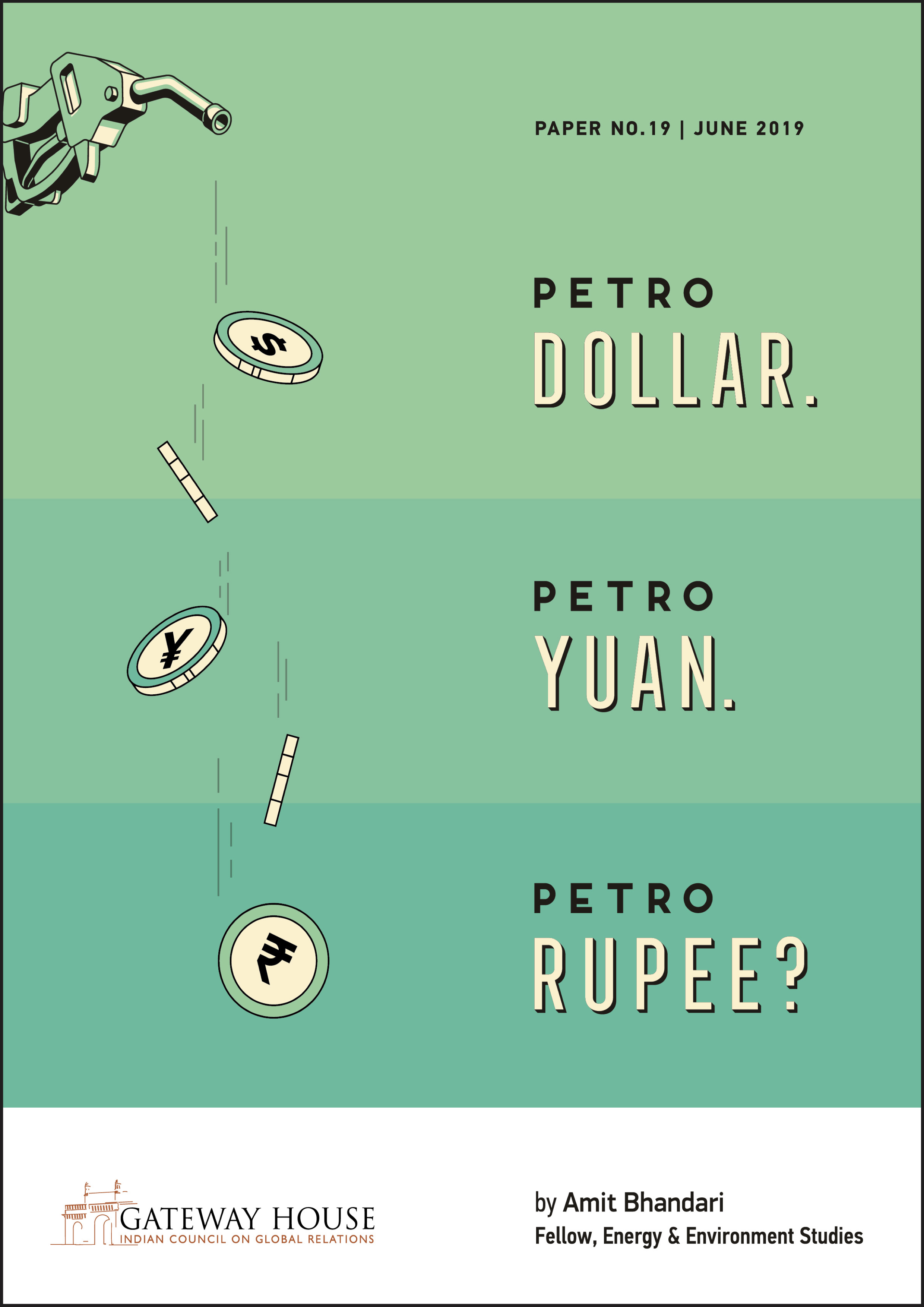Mumbai, September 25, 2019: The recent attack on Aramco’s oil processing facility reveals how vulnerable the global oil supply chain and the economies of oil importers such as India, are to geopolitical and other disruptions. India has an immediate opportunity to protect itself from such disruptions by using its growing financial strength and energy consumption needs.
The global energy scenario has changed radically over the last two decades. The U.S., which was historically the largest consumer and importer of oil, is now becoming an exporter with its shale oil reserves. China’s economic growth is slowing, and oil demand is expected to plateau; Western Europe and Japan have been consuming less oil for more than a decade. India is now the world’s third largest oil importer, after China and the U.S.
The currency of the energy trade – the U.S. dollar – has not changed to align with this shift in global energy consumption patterns. Nor has the underlying ecosystem of the energy trade, still conducted mostly on Western exchanges, and based on pricing that doesn’t reflect current oil demand.
This is creating imbalances and resentments, which can be alleviated by new alignments and creative engagement by the major energy consumers. A breakthrough paper on alternative petrocurrencies by Amit Bhandari, Fellow, Energy and Environment Studies Programme, Gateway House examines whether its’s time for the oil trade to be conducted in the Rupee on a dedicated Indian energy exchange. “India can leverage its open markets and transparent regulation to make itself the hub of a vibrant new international oil market. This will improve the country’s energy security and create an international role for the Rupee. It can move India from the periphery to a more central position in the global financial system,” says Bhandari.
Such a role for India is vital now with China challenging Western dominance by trying to internationalise its own currency and move the global oil trade to the Yuan. “India must not cede this global role to China, which has already acquired strategic ports and assets in countries around India under its Belt and Road Initiative,” adds Bhandari.
A new policy research paper by Gateway House presents a detailed strategy for India to use its growing clout as an oil buyer and establish the Petro Rupee while examining the associated opportunities and challenges. The paper recommends the following:
- Launch crude oil exchange-traded funds (ETF) on Indian stock exchanges. These ETFs will be like the gold ETFs which are widely owned by retail investors in India, and which hold gold on behalf of investors. The reserves of crude ETF can double up as India’s Strategic Petroleum Reserve (SPR).
- Devise long-duration futures and options contracts for oil on Indian commodity exchanges. The investors in crude ETF will be the option sellers in this market, making the trade possible.
- Introduce new products on commodity bourses – diesel, petrol and other petroleum products that are produced by refining crude oil.
- International companies selling oil to India must be encouraged to use the Indian commodity exchange for price discovery and hedging. As a large buyer of crude oil from West Asia, India can incentivise?? those companies to trade on an Indian exchange.
- The Indian government has stepped in to subsidise consumers in times of high oil prices in the past. A spike in oil prices still poses a risk to state finances. The government can use the financial instruments (options) available on the Indian commodity exchange to hedge its risk from high prices.

The full paper, Petro Dollar. Petro Yuan. Petro Rupee? can be found at: https://www.gatewayhouse.in/wp-content/uploads/2019/08/PetroDollarPetroYuanPetroRupee.pdf
Please contact Aliasger Bootwalla at outreach@gatewayhouse.in with further questions.
Issued by:
Gateway House: Indian Council On Global Relations
Cecil Court, 3rd floor
Colaba, Mumbai – 400 001

